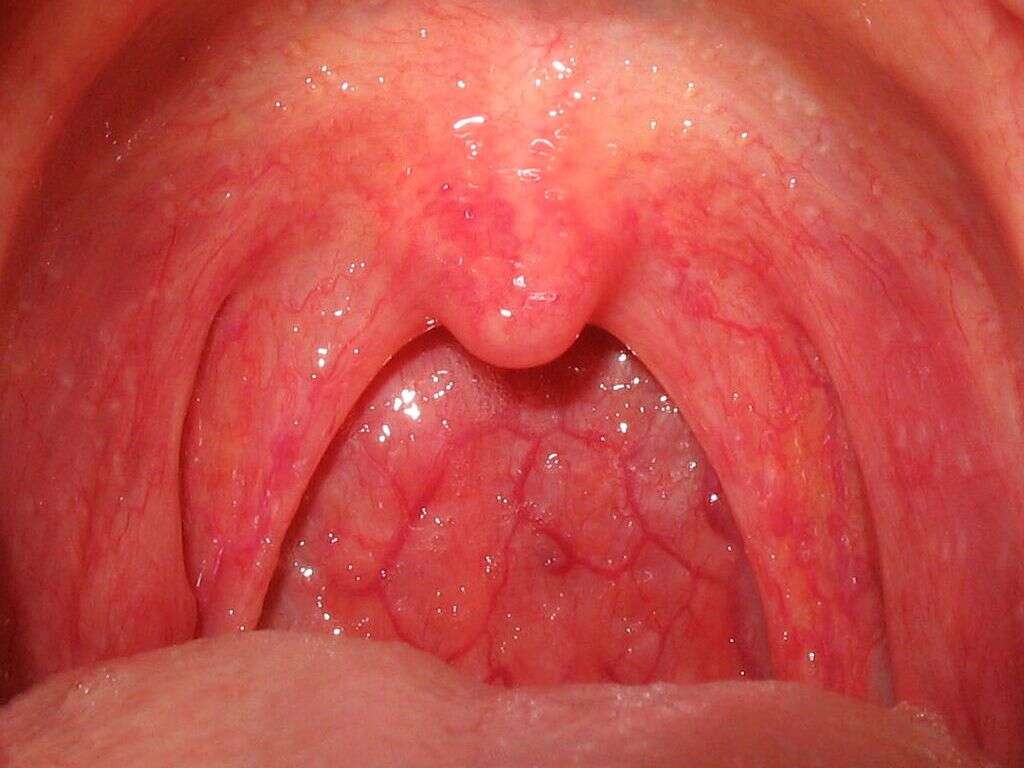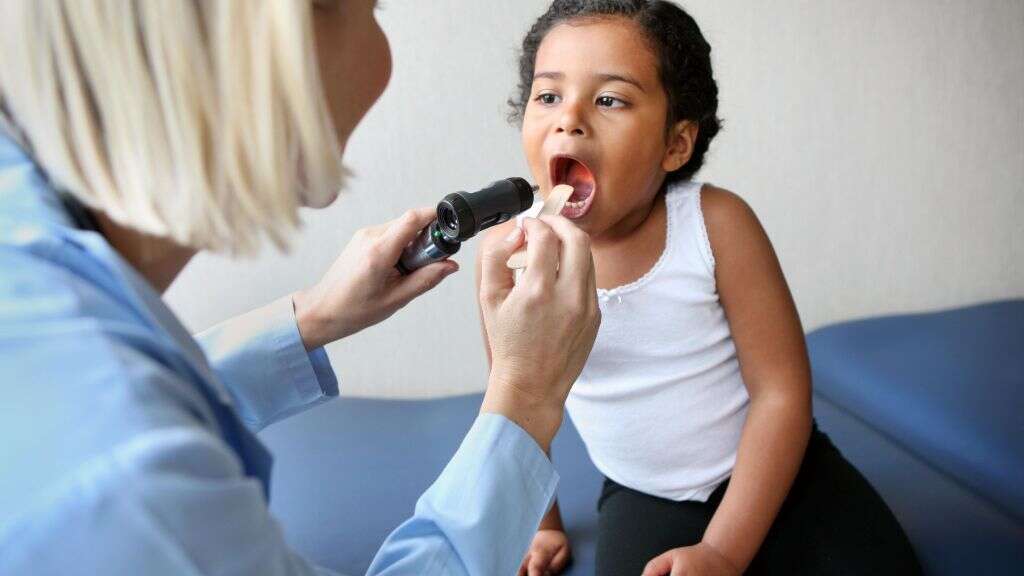What Is Viral Pharyngitis?
Viral pharyngitis may sound complicated, but it is actually simply medical jargon for a sore or irritated throat. This happens when the mucous membranes of the pharynx, or back of the throat, get inflamed. This inflammation can make swallowing difficult, and there is often dryness and soreness.
Viral pharyngitis is common, and it usually goes away with no complications. There are numerous causes of pharyngitis, and knowing what is behind the condition can help determine what the best type of treatment is. Depending on what causes it, either medical intervention or at-home care may be recommended.

1. How Does Viral Pharyngitis Differ from Bacterial Pharyngitis?
Medical professionals refer to the overall condition as pharyngitis, but it is important to understand that there are two different types: viral and bacterial. Viral pharyngitis is caused by a virus of some kind, while the bacterial type is caused by bacteria or a bacterial infection. Bacterial pharyngitis is less common than the viral type. In 20% to 40% of cases, the bacteria group A Streptococcus causes pharyngitis. This is also known as strep throat. Other types of bacterial infections that lead to pharyngitis include group C and G Streptococcus, gonorrhea, mycoplasma pneumoniae and chlamydia.
Another difference between the two types of pharyngitis is the treatment method. With bacterial pharyngitis, antibiotics are effective. However, antibiotics are not effective for viral pharyngitis, and the misuse of these medications can lead to antibiotic resistance.

2. What Causes Viral Pharyngitis?
Unlike bacterial pharyngitis, viral pharyngitis is caused by a variety of viruses. People who have viral infections are more prone to develop sore throats. Rhinovirus, which is the main cause of the common cold, is the most common infection that people get. Other common viruses include adenovirus, coronavirus, influenza, measles, Epstein-Barr, chickenpox, croup and whooping cough.
Certain things can increase one’s risk of getting pharyngitis. Being exposed frequently to others with flus and colds is one, so people who work in healthcare settings are at higher risk. People who smoke or are exposed regularly to second-hand smoke have greater chances of getting pharyngitis. Other risk factors include having a history of recurrent sinus infections or a history of allergies.

3. How Is Viral Pharyngitis Transmitted?
The viruses and germs that cause viral pharyngitis usually live in the throat and nose, and this makes pharyngitis quite contagious. These germs are transmitted when someone sneezes or coughs. When this happens, the virus is contained in tiny droplets that can transfer to other people in a number of ways. If someone is close to the person who is infected, the tiny droplets can be breathed in. The droplets also land on objects, so people can be exposed if they touch the objects and then touch their face. People can also get it by consuming beverages and food that contain the viruses.
Transmission can be reduced if people are careful to wash their hands with soap and water after sneezing or coughing and before touching their face or food. Viral pharyngitis can be passed on to others even before any symptoms appear, and the recovery period is typically between seven and 10 days.

4. What Are the Symptoms?
The incubation period of viral pharyngitis is between two and five days. The primary symptom is a sore throat, which can range from mild to more severe. The throat may also be itchy and dry, and it may be more difficult to swallow. Because pharyngitis is often caused by a viral infection, most people will experience additional symptoms.
Common symptoms that typically accompany viral pharyngitis are headache, cough, runny nose, chills, fever, fatigue, sneezing, body aches, mouth ulcers, nasal congestion and swollen lymph nodes. If pharyngitis is caused by mononucleosis, some potential symptoms include overwhelming exhaustion, rash, abdominal pain and poor appetite. With some forms of viral pharyngitis, a person may be contagious until the fever is gone, even if other symptoms persist.

5. How Do Doctors Diagnose Viral Pharyngitis?
If someone goes to the doctor for a sore throat, a number of diagnostic methods may be used to find out what is going on, because there are numerous illnesses that can cause this symptom. The first thing a doctor will do is examine the throat to look for redness, swelling and any white, red or gray patches. The doctor may palpate the sides of the neck to see if the lymph nodes are swollen. The ears and nose may also be examined.
For viral pharyngitis, a physical exam usually gives the doctor enough information. If the doctor suspects something more is going on, a throat culture can be taken to diagnose strep throat. In rarer instances, the doctor may order blood work to determine a diagnosis of mononucleosis or another viral or bacterial infection.

6. What Treatments Are Available?
Because the cause is not a bacterium, antibiotics are not an effective treatment for viral pharyngitis. For most mild viruses, home care is typically the best option. If there is fever, body aches or other pain, ibuprofen, acetaminophen or other over-the-counter medication may help with symptoms. Sucking on throat drops can also help ease discomfort in the throat.
In most cases, viral pharyngitis will clear up on its own over time. However, there are things people can do to help speed up healing, ease symptoms or both. Sleep is always important when fighting off infection, so increasing rest time is a good start. People should stay hydrated from the inside by drinking lots of clear fluids, and they should also use a humidifier to increase moisture in the air. To soothe the throat, patients can suck on ice chips, drink warm beverages or gargle salt water.

7. Are There Herbs or Other Alternative Remedies for Pharyngitis?
Along with home care, some people choose alternative remedies, and herbs are popular options. Honeysuckle flower is a sweet herb that helps decrease inflammation. For a sore throat, make hot tea using the flowers. Marshmallow root has been used for years to help soothe sore, swollen throats because it helps loosen mucous in the back of the throat. It is also best used in tea.
Slippery elm may help reduce mucous and irritation. The herb can be made into tea or found in throat lozenges. Licorice root helps reduce swelling and thin mucous secretion. Tea can be made with the root, or licorice powder can be added to a different tea. The powder can also be mixed with warm water for a gargle rinse. However, patients should always consult with a doctor before using herbal remedies, as they can cause health complications or drug interactions.

8. Is It Possible to Prevent Viral Pharyngitis?
Although viral pharyngitis is common, it is often preventable. The best thing to do is avoid contact with people who have some type of viral or bacterial infection. Washing hands is especially important. This can be done with warm water and soap or alcohol-based hand sanitizers. Hand washing is critical after being around someone with symptoms as well as after sneezing or coughing. It also helps to avoid sharing drinks, food and utensils with anyone else.
Smoking increases the risk of getting pharyngitis, so avoiding this habit and staying away from others who smoke helps prevent it. Viral pharyngitis is especially common in children aged 14 years and younger as well as during winter months, so special precautions should be taken in these circumstances.

9. When Should Someone Visit a Doctor for Pharyngitis?
The majority of people recover from viral pharyngitis without any medical intervention, so a doctor’s visit is usually not warranted. However, because the symptoms can indicate a more serious illness, there are certain signs that recommend a visit to a healthcare provider. Although a mild fever is common, seek professional medical advice if the fever reaches above 100.4° F. Another indication is if the sore throat lasts for more than a week, it is extremely painful to swallow or both.
It is also a good idea to contact a doctor if there is a new rash or difficulty breathing. There are rarely complications of viral pharyngitis, but persistent or severe symptoms could indicate something more serious, such as rheumatic fever or peritonsillar abscess.

10. Are There Other Diseases That Mimic Viral Pharyngitis?
Inflammation of the throat is a common symptom of viral pharyngitis, but it also indicates the possibility of a number of other conditions. This is why a doctor may conduct additional diagnostic tests so the patient gets the correct treatment recommendations. Tonsillitis mimics many of the symptoms of pharyngitis because there is a sore throat accompanied by inflammation of the tonsils. Laryngitis is inflammation of the voice box and may cause a sore throat.
Throat ulcers are sores that are filled with pus, and they have symptoms that are similar to bacterial pharyngitis. Initial allergic reactions may also feel like a sore throat. Other diseases that can mimic the symptoms of pharyngitis include acute thyroiditis, gastroesophageal reflux disease, lymphoma, leukemia, Behcet disease, oral mucositis and Steven-Johnson syndrome. To diagnose these other conditions, the doctor may order additional lab or imaging studies.












